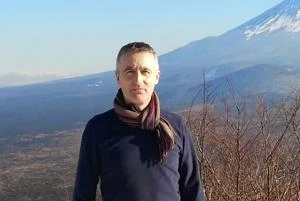
Connect
About
Gareth is Professor of Urban Geography and Director of the MSc Urbanisation & Development programme.
Gareth’s research involves two principal projects. First, funded by a grant from the Swedish International Centre for Local Democracy is research on ‘Addressing Urban Violence and Improving Local Security through Participatory Action Research with Young People in Colombia and South Africa’. This project brings together partners from Colombia and South Africa in collaboration with local institutions and communities working to reduce violence in Medellín and Cape Town. The research is about listening to and working with young people to understand and address the root causes of violence, develop more effective and rights-based local security strategies, and strengthen institutional accountability through youth-centred evidence and actionable knowledge.
Second, Gareth is writing up research from a British Academy funded project, ‘Engineering food: infrastructure exclusion and ‘last mile’ delivery in Brazilian favelas’. This research, with Dr Mara Nogueira (Birkbeck) and Dr Aiko Ikemura Amaral (KCL), looks at food access and practices in favela and occupations in Belo Horizonte and São Paulo, Brazil. With fieldwork conducted during the COVID-19 pandemic, the research has used the notion of ‘social infrastructure’ to look at how neighbourhoods and civil society responded to make food accessible, and how households relate to food practices, nutrition, and nostalgia. A film from the research has been produced.
Gareth teaches courses on the Geographies of Urban Violence, Global Urbanism and Urban Ethnography, where he also draws from previous research on youth and gangs, on the commodification of urban poverty and violence in Kingston, Mexico City, Rio de Janeiro and New Orleans, and on elite identities in gated estates in Durban and Johannesburg. Specifically, Gareth conducted ethnographic research with a group of ‘street youth’ in Mexico, noting how they related to civil society, security agencies and the state. This included involvement in a five-year European Research Council project entitled Gangs, Gangsters, and Ganglands: Towards a Global Comparative Ethnography. He was Co Principal Investigator on an ESRC-NWO-DFG grant, with Professors Rivke Jaffe (Amsterdam) and Eveline Dürr (LMU), that looked at how inequality, represented through violence and poverty, has become a chic USP that is sometimes incorporated into city branding, but often highly contested by residents and activists. And in South Africa Gareth and Richard Ballard (University of Witwatersrand) have studied how gated estates ‘do work’ to affirm class positions, ideas of whiteness, the management of nature, and the symbolism of architecture and lifestyle.
Gareth has published his research in numerous journals including Annals of the American Association of Geographers, City, Cultural Anthropology, Ethnography, Political Geography, Space & Culture, and Urban Studies.
Expertise
cities; gated communities; gangs; gentrification; international urban policy; urbanism; violence; youth